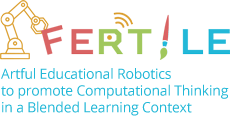People
Learn more about the people behind FERTILE Project
People
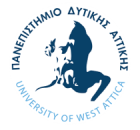

Dr Cleo Sgouropoulou
Dr Cleo Sgouropoulou is a professor of learning technologies at UNIWA, director of the EDUTeL, and director of DITREP MSc program. She is also Vice-Rector for Finance, Programming and Development of UNIWA, has served as Head of the ICE Department and Director of CLEL. She has led several institution-wide, national and EU-funded projects related to the design and development of learning technology systems and services for HE and VET, focusing on Open Educational Resources (OER), educational taxonomies, learning outcomes, competence and skills models for strengthening LLL, mobility and training to employment pathways, open data and learning analytics, implementation of data-driven assessment and quality assurance approaches. Her research interests include software engineering, artificial intelligence in education, user modeling, and quality assurance in education.

Dr Kyparisia Papanikolaou
Dr Kyparisia Papanikolaou is a professor of e-learning at the Department of Education of ASPETE, and deputy director of the DITREP MSc program. She holds a BSc, MSc in computer science and a PhD in web-based learning environments. She was a key researcher at the Socrates Comenius project “Teacher Education on Robotics-Enhanced Constructivist Pedagogical Methods”, (Training of School Education Staff). She has co-organised workshops and training events on educational robotics, and she was a member of the organising committee of Bebras (International Challenge on Informatics and Computational Thinking) for two years 2018-2020. Her primary research interests focus on technology enhanced distance learning, educational robotics and computational thinking, learning design, teacher professional development, personalization at individual & group level.

Dr Clio Fanouraki
Dr Clio Fanouraki is an associate professor of Theatrology at the Department of Theatre Studies, University of Athens. She holds a Bachelor’s Degree with Honours in Film Studies from the University of Greenwich, a Master’s Degree in Theatre and Contemporary Practice from the University of Hull, and a doctoral degree in Τheatre Education from the Department of Theatre Studies, University of Patras.
She has been active in teaching, writing and directing theatre and film for children, young people and adults.
Her scientific interests and research focus on theatre/drama education, contemporary theatre and performance, theatre and digital technologies, bilingual/multicultural drama education, writing, teaching and directing drama and theatre for children, teenagers and adults.

Dr Panagiotis Karkazis
Dr Panagiotis Karkazis is Assistant Professor of embedded systems and networking services design at the University of West Attica, Greece. He is also member of the governing committee of DITREP. His research interests include communication protocols, robotics systems, and innovative network applications in the context of Next Generation Networks. He currently co-teaches at DITREP a course on educational robotics.

Dr Spyros Siakas
Dr Spyros Siakas is Assistant Professor at the Department of Graphics and Visual Communication Design of UNIWA where he teaches Animation (3d-2D), Gaming and Storyboard, a member of the EDUTeL lab of UNIWA and member of the teaching staff of the DITREP MSc program. He holds a BA in Pedagogy, a BA in Graphic Design and a Master of Arts. He has directed various educational animation and live-action films as well as short animated films that have been awarded in international animation festivals, including the ASIFA award for his film “The Mirror Stage” in 2005.

Dr Maria Tzelepi
Dr Maria Tzelepi holds a PhD in online learning communities from the department of Psychology, National and Kapodistrian University of Athens, Greece. She currently works as an ICT teacher in primary education. She uses robotics in her classes working on cross disciplinary projects. She also co-teaches at DITREP, a course on educational robotics. Her research interests include blended learning and communities of inquiry, educational robotics and computational thinking.

Eleni Zalavra
Eleni Zalavra is a PhD candidate on Learning Design at the Department of Informatics and Computer Engineering, University of West Attica, Greece. She holds an MSc in Educational Technology from the National University of Athens, Greece and a BSc in Informatics from the University of West Attica. She works as an ICT Teacher at Athens Directorate of Secondary Education.
Her research interests are in the area of learning design, teacher education and online communities.

Nafsika Pappa
Nafsika Pappa is a PhD. candidate on Computational Thinking and Educational Robotics at at the Department of Informatics and Computer Engineering, University of West Attica, Greece. She holds an MSc in Educational Technology from the National University of Athens, Greece and a BSc in Informatics from University of Piraeus, Greece. She currently works as an ICT Teacher in secondary education where she teaches programming and educational robotics. She assisted the organising committee of Bebras (International Challenge on Informatics and Computational Thinking) for Greece for two years (2018-2020). Her research interests include computational thinking, educational robotics and blended learning.

Nikos Kladis
Nikos Kladis is a senior MSc student at the MA Programme “Greek and World Theatre: Drama, Performance, Education”, of the Department of Theatre Studies of School of Philosophy of the NKUA, in specialisation of Theatre Didactics. He holds BA in Theatrology and he has collaborated with primary and secondary schools for the teaching of Theatre Education, but also for the implementation of digital projects. His research interests include the use of digital technologies in Theatre in Education.


Dr José M. Cañas
Dr José M. Cañas cofounded the RoboticsLabURJC in 2000. He was member of Robot Learning Lab at Carnegie Mellon University, and of Mobile Robot Lab at Georgia Tech. He regularly publishes in indexed journals (20+), leads (3) and participates (10) in competitive projects and technology transfer projects to industry (200+ K€ in recent years). He teaches robotics and computer vision. He advised 7 PhD thesis and 18 Master thesis. He is interested in Robotics education at all levels, from primary school to university degrees. He is the coordinator of the Robotics Software Engineering Degree at URJC (https://www.urjc.es/estudios/grado/3099-ingenieria-de-robotica-software).
Dr David Roldán Alvarez
Dr. David Roldán Alvarez obtained his PhD in 2017. His interests are teaching innovation through technology to improve both the performance of teachers and the performance of students. From 2015 to 2018 he was research staff within U. Autónoma de Madrid. He is assistant professor at the URJC, combines teaching with participation in research projects. He has participated as a researcher and developer in 3 technology transfer projects (Bluethinking of the Orange Foundation, Clipper of JISC and DEDOS of ISBAN), 3 national research projects and 2 international ones (FP7, 2012-2015; SwafS 2019-2022). They all were oriented to the creation of new teaching methodologies based on technology. Alvarez
Dr Lía García
Dr Lía García is lecturer in Industrial Systems Engineering in Universidad Francisco de Vitoria. She also collaborates with the RoboticsLabURJC in a URJC master. She cofounded Logix5 (https://www.logix5.com/roboticaeducativa/) in 2011, a company which is actively involved in educational robotics projects. She was the coordinator of the Hisparob Educational Robotics Group 2015 -2019 (https://robotica-educativa.hisparob.es/) and the Spanish coordinator of the European Robotics Week (https://www.eu-robotics.net/robotics_week/). She has participated in publications, events, workshops, and courses related to educational robotics.


Petra Vaňková
Petra Vaňková is engaged in visualization of knowledge of their presentations and evaluations (concept and mind mapping, maps of concepts, etc.), interactive technologies involved in the educational process (interactive white boards, mobile touch devices, etc.) and the development of computational thinking mainly through propaedeutic programming languages and robotic programmable toys. She teaches two vocational subjects at faculty, which are aimed at educational robotics. In recent years, she has been involved in project activities in the development of information literacy, digital literacy at the national level and is one of the authors of a textbook for the development of algorithmic thinking of elementary school pupils. She is currently promoting a new national curriculum at elementary schools in the field of Informatics with new content focused on computational thinking, where the big role plays educational robotics and robotic programmable toys.
Tomáš Jeřábek
Tomáš Jeřábek works as a full time Assistant Professor at the Faculty of Education at Charles University at the Dept. of IT and Technical Education. He received his PhD. in Pedagogy with a specialization in Didactics of information and technical education at the same faculty. In his thesis he explored the phenomenon of Augmented Reality and the potential for its usage in education. At the faculty he is a teacher of pre- and in-service teacher education courses focused on educational applications of ICT related to multimedia, mobile platforms, LMS, programming and web technology. As a leader he has managed the national conceptual project Support of Development of Digital Literacy funded by the Czech Ministry of Education focused on designing a framework of digital competence in Czech curriculum and relevant learning resources. He was also involved in the European project DIYLab (Do It Yourself in Education: Expanding Digital Competence to Foster Student Agency and Collaborative Learning). His expertise and professional interest is focused on programming and web applications development, e-learning platforms, LMS and multimedia systems supporting education.
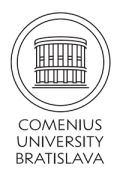

Zuzana Kubincová
Zuzana Kubincová is associate professor at DInfEdu. She received her Master degree in Computer science and PhD degree in Theory of Informatics Education from the Faculty of Mathematics, Physics, and Informatics, Comenius University in Bratislava. She was or is a key researcher of national VEGA projects 1/0948/13, 1/0797/18, and a bilateral Slovak-Taiwanese project SK-TW-2017-0006. She has participated on multiple successful national KEGA projects and also on international projects, e.g. Kaleidoscope – Network of Excellence. For several years she served as a representative of Slovakia in the International Association of Ministries of Education of EU in Brussels (Digital Competence Working Group, European SchoolNet), and as a consultant for a Research center of European Commission (Framework for Digital Competence, Institute for Prospective Technological Studies). She is the chair of the National Commission for Curriculum Development for the Teaching of Informatics in Primary and Secondary Education. Her research area includes digital competencies of students and teachers, teachers’ lifelong learning, and more recently exploiting Web technologies in education, gamification and new forms of evaluation.
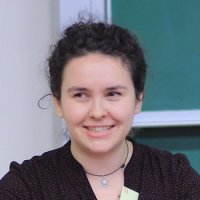
Karolína Miková
Karolína Miková is assistant professor at DInfEdu. She gained her PhD. in the area of educational robotics for primary school pupils. Her professional interests are focused mainly on didactics and propaedeutic of informatics, methodology of educational research and educational robotics. She was/is involved in several national VEGA projects, the Czech national PRIM project, projects ITAcademy and TaCr, mostly focused on motivation, computational concepts in programming in primary school and educational robotics. She is regularly involved in preparing the informatics competition iBobor (iBeaver) and the robotic program FIRST® LEGO® League in Slovakia. She actively collaborates with in-service teachers.
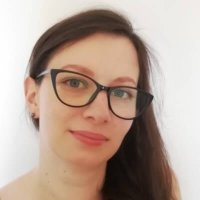
Lucia Budinská
Lucia Budinská is assistant professor at DInfEdu. She received her Master degree in Applied Informatics and, recently, PhD degree in the field of Theory of Informatics education. Her research is focused on development of computational thinking based on informatics competition tasks. She was involved in the research of educational robotics in primary education and served as a teacher who tested educational materials and methodology at first grades of primary school.

Jakub Krcho
Jakub Krcho is a judge and member of committee at robotic competition RoboCup Junior (national & international). He is working with robotics for more than 10 years (as student, competitor, judge, teacher). He is a teacher at secondary school (programming, robotics, math, IoT, introduction to AI) and organisator of summer school of robotics in Slovakia. He is also a competitor, volunteer and judge in many robotic competitions (FLL, RoboCup Junior, RoboRave, G-Robot). Besides, he is a PhD student at the Faculty of Mathematics, Physics and Informatics (Comenius University).
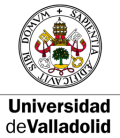

Yannis Dimitriadis
Yannis Dimitriadis is Full Professor of Telematics Engineering and director of the GSIC/EMIC research group. His research interests include technological and conceptual support to teachers regarding learning design, orchestration, and learning analytics of technology-enhanced learning processes. He has participated in 55 competitively-funded research projects on technology-enhanced learning, having led more than 25 projects. He has co-authored more than 320 peer-reviewed publications (7500+ citations, H-index 45).
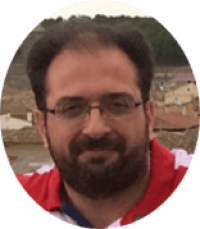
Juan I. Asensio-Pérez
Juan I. Asensio-Pérez is Full Professor of Telematics Engineering. He has contributed extensively in the learning design and community platforms. His research interests include learning design, computer-supported collaborative learning (CSCL), scripting, and learning analytics. He has participated in 24 competitively-funded research projects (10 of them international), such as Kaleidoscope Network of Excellence, Grid4All, METIS and PREATY, CARESS and colMOOC projects. Dr. Asensio-Pérez has co-authored more than 180 peer-reviewed publications, with high impact in the TEL research community (3,800+ citations, H-index 33).
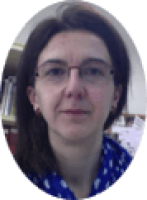
Alejandra Martínez-Monés
Alejandra Martínez-Monés is Associate Professor of Computer Science, with a focus on design and evaluation methodologies. Her research interests include the adoption of technology-enhanced learning systems by learners and teachers. She has led the UVA team in the EU-funded projects INTELedand PREATY. She has co-authored more than 150 peer-reviewed publications (3,500+ citations, H-index 27).

Paraskevi Topali
Paraskevi Topali (Technology-Enhanced Learning MS) is a Ph.D. candidate in GSIC-EMIC Research Group at the University of Valladolid, Spain. Paraskevi has a background in Pedagogy and her research interests include visual programming and educational robotics, learning at scale, adult learning, MOOCs, feedback strategies, Learning Design and Human-Centered Learning Analytics. Paraskevi has an international profile (including professional experience in Greece, Spain, Germany and Estonia), she has been involved in several research projects and she participates actively in research societies, such as the European Association of Technology Enhanced Learning (EATEL) and the EATEL Summer School on Technology Enhanced Learning (JTELSS).

Mohamed Saban
Mohamed Saban earned his master’s degree in networks and telecommunications engineering from the National School of Applied Sciences of Tetouan, University of Abdelmalek Essaâdi, Tétouan, Morocco, in 2017. He later accomplished a significant academic feat, receiving a double Ph.D. degree from the University of Valencia, Spain, and the University of Abdelmalek Essaâdi, Morocco, in July 2023.
His research interests include wireless sensor networks, IoT networks, development of new IoT sensors, and development of IoT monitoring applications.
